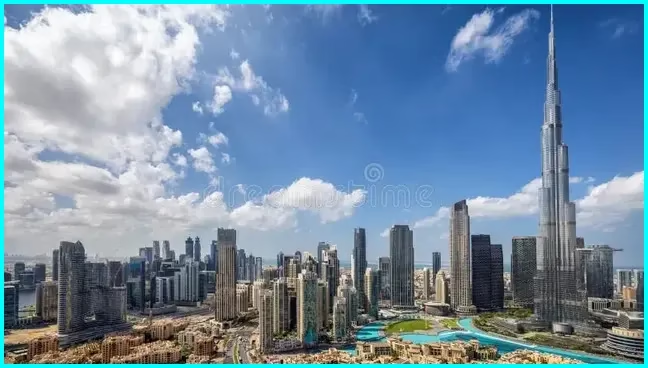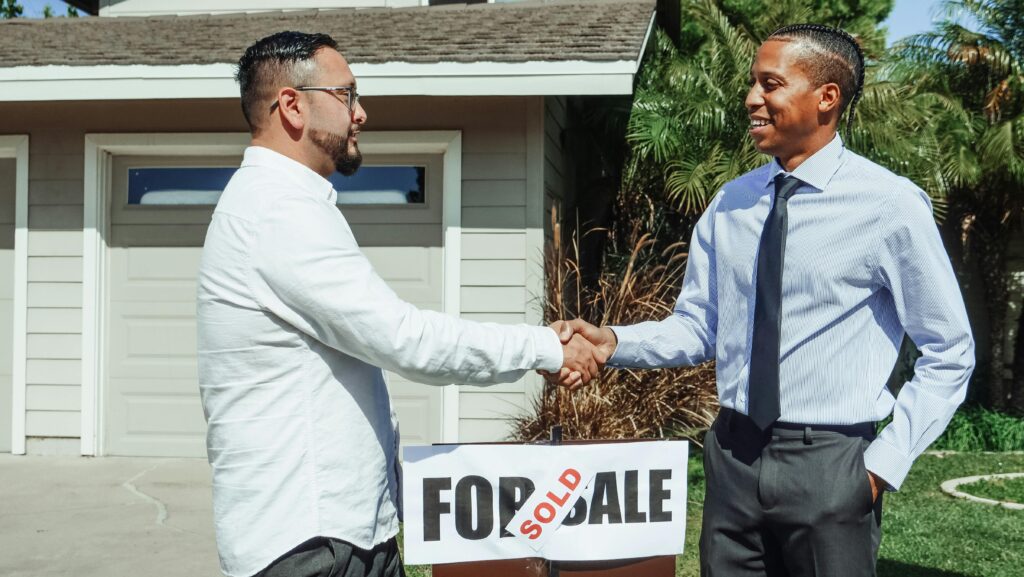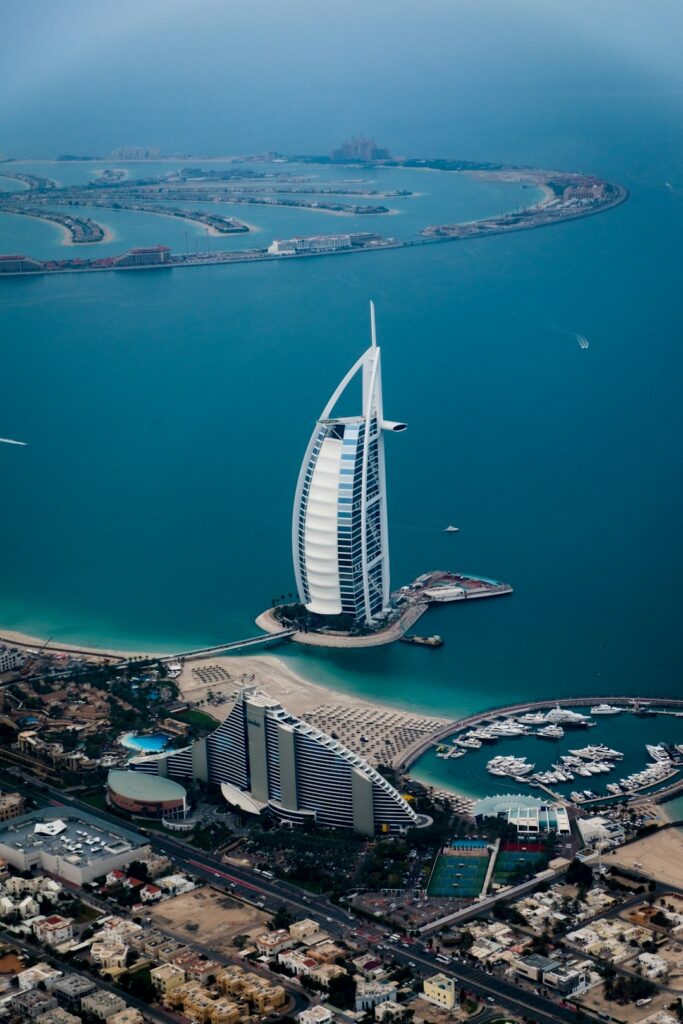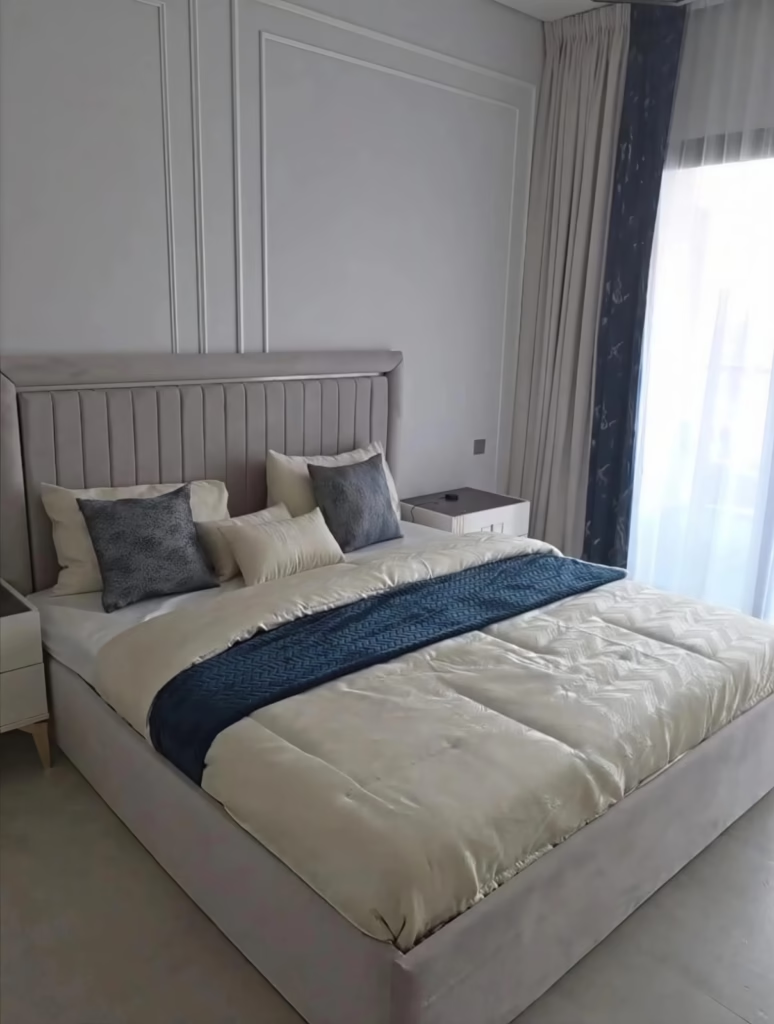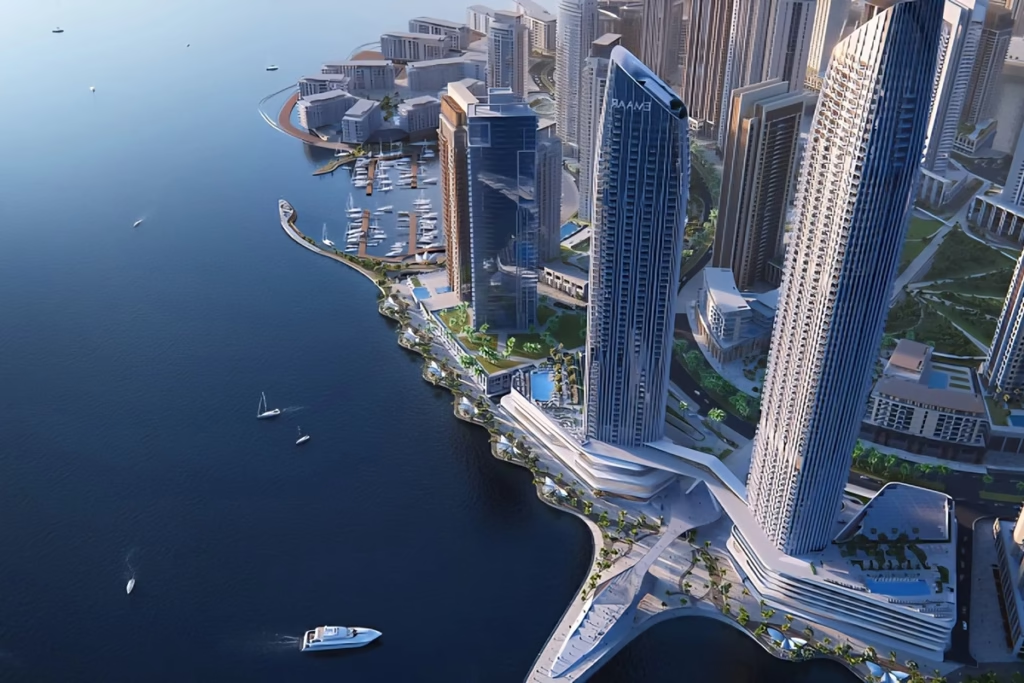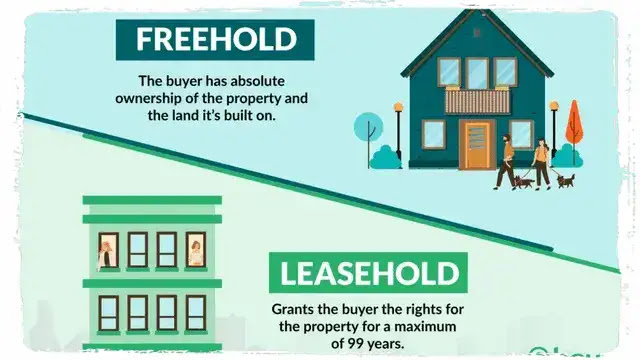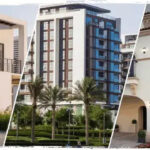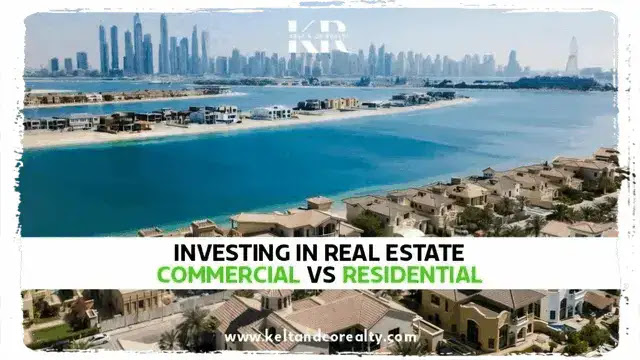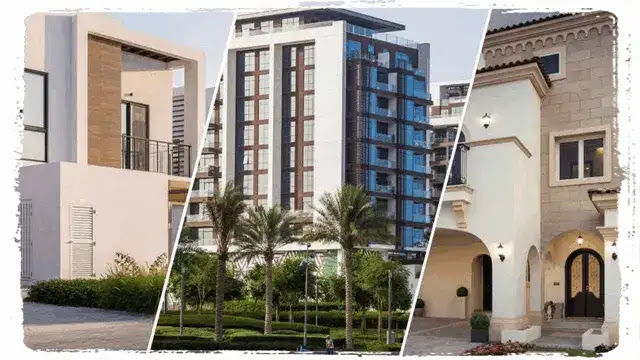Freehold vs Leasehold Properties in Dubai: Pros, Cons, and Key Differences

Overview of Freehold and Leasehold Properties
When embarking on the journey of property ownership in Dubai, it’s essential to familiarize oneself with the two primary types of property ownership: freehold and leasehold. Understanding these distinctions can significantly impact your investment strategies and overall satisfaction as a property owner.
Freehold properties grant owners full rights over the land and the building on it. This means you can live, lease, or sell the property without restrictions once you purchase it. On the other hand, leasehold properties involve acquiring the rights to use a property for a specific period, typically ranging from 30 to 99 years, after which ownership reverts back to the landowner.
Key Characteristics:
- Freehold:
- Complete ownership with no time limits.
- Can be sold, inherited, or leased at the owner’s discretion.
- Leasehold:
- Temporary ownership with a defined end date.
- Usually involves recurring payments to the freeholder (the landowner).
Personal stories often arise in discussions about property choices. A family may opt for freehold property to establish a permanent family residence, while an expatriate might prefer a leasehold property for its lower upfront costs and flexibility.
Watch the following video explain the difference between Freehold vs Leasehold👇👇👇
$ads={1}
Significance of Property Ownership Types in Dubai
In Dubai, the real estate landscape is particularly vibrant, and the choice between freehold and leasehold ownership carries significant weight. With a growing expatriate population and a booming market, understanding the ownership types can enhance investment decisions.
Consider these points of significance:
- Investment Opportunities: Freehold properties often yield higher returns and suggest stability—ideal for long-term investment.
- Market Dynamics: Leasehold properties may appeal to those prioritizing mobility, allowing individuals to adapt to changing life circumstances without long-term commitments.
The structure of property ownership in Dubai not only influences financial decisions but also enhances the lifestyle choices of residents. Awareness of these factors is crucial for anyone considering diving into the dynamic Dubai real estate market.
Understanding Freehold Properties
Definition and Characteristics
Continuing our exploration of property ownership in Dubai, let’s dive deeper into freehold properties. These properties are characterized by complete ownership, allowing the owner unrestricted control over both the land and any structures upon it. Imagine having a home where you can paint the walls any color you desire and landscape the garden however you like – that’s the beauty of owning a freehold property!
Key Characteristics:
- Full Ownership: The owner possesses both the land and the property without any time constraints.
- Flexibility: Owners can lease, renovate, or sell their property as they see fit.
- Investment Potential: Freehold properties frequently increase in value, particularly in high-demand areas.
Advantages of Owning Freehold Properties
The allure of freehold properties in Dubai often lies in the numerous benefits they offer:
- Long-term Security: Owning a freehold means you’re investing in a permanent asset that doesn’t revert to anyone else.
- Better Financial Returns: Historically, freehold properties tend to appreciate more reliably than leasehold options, making them ideal for investors looking for solid long-term growth.
- Customization: Owners can completely tailor their property to reflect personal tastes and preferences without needing approval from a landlord or other stakeholders.
A friend of mine, an expatriate who settled in Dubai, discovered the advantages firsthand. After purchasing a freehold apartment in a burgeoning neighborhood, not only did she enjoy a welcoming community, but her property value also soared over the years.
Disadvantages of Freehold Properties
However, as with any investment, freehold properties come with their own set of challenges:
- Higher Initial Investment: The upfront costs tend to be greater compared to leasehold properties, which can deter first-time buyers.
- Maintenance Responsibilities: Owners bear the full responsibility for maintenance, repairs, and property management.
- Market Fluctuations: While freehold properties can appreciate, they can also be subject to market downturns, impacting investment returns.
Understanding both the advantages and disadvantages of freehold properties allows prospective buyers to make informed decisions that align with their lifestyle and investment goals. Thus, grasping the nuances of property ownership is crucial for anyone navigating the Dubai real estate landscape.
Exploring Leasehold Properties
Definition and Features
As we explore the realm of property ownership in Dubai further, it’s vital to understand leasehold properties. Unlike freehold options, leasehold properties grant the buyer the right to use and occupy the property for a specified duration, typically between 30 and 99 years. Once this period expires, the ownership of the property reverts back to the freeholder.
Key Features:
- Time-bound Ownership: Owners secure the right to the property for a set period, after which they may need to negotiate a renewal.
- Possession vs. Ownership: While the leaseholder has control over the property during the lease term, they do not own the land.
- Regular Payments: Leaseholders often pay an annual ground rent to the landowner, alongside any service charges for property maintenance.
A colleague of mine, who started his career in Dubai, opted for a leasehold property due to its affordability in a desirable location. This choice allowed him to enjoy vibrant city life without the hefty price tag associated with freehold properties.
$ads={1}
Benefits of Leasehold Properties
Leasehold properties come with several appealing benefits that can work in favor of potential buyers:
- Lower Initial Costs: Generally, leasehold properties are more affordable upfront, making them a good option for first-time buyers.
- Flexible Living Arrangements: They are ideal for those who may later want to relocate or are unsure of their long-term plans.
- Access to Prime Locations: Leasehold options might be available in desirable areas where freehold properties are scarce or prohibitively expensive.
For instance, expatriates often choose leasehold properties in bustling areas like Dubai Marina, which allows them to enjoy the city’s ambiance without committing to a long-term investment.
Drawbacks of Leasehold Properties
However, leasehold ownership isn’t without its challenges, and understanding these is crucial:
- Temporary Ownership: The finite nature of leasehold agreements means uncertainty about the future. Owners may find themselves needing to renegotiate terms as the lease runs down.
- Potential for Increased Costs: Ground rent and additional fees can increase over time, affecting overall ownership costs.
- Limited Control: Leaseholders typically face restrictions on modifications and renovations and must often seek permission from the freeholder for changes.
In summary, while leasehold properties can be a practical and affordable option for prospective buyers in Dubai, it is essential to weigh the pros and cons against individual investment goals and preferences. With an informed perspective, buyers can confidently navigate their choices in the Dubai real estate market.
Comparison between Freehold and Leasehold Properties
Variation in Ownership Rights
As we transition from our exploration of leasehold properties, it’s imperative to compare the fundamental differences between freehold and leasehold ownership, particularly concerning their variations in ownership rights.
When you purchase a freehold property, you enjoy full ownership. This means:
- Complete Control: You can make decisions regarding the property without seeking approval from anyone.
- Inheritance: You can pass on the property to heirs without restrictions.
In contrast, leasehold properties offer a temporary stake in a property:
- Time Restrictions: Leaseholders own the property only for a specified duration, after which ownership returns to the freeholder.
- Limited Rights: Changes or renovations typically require approval from the freeholder, which can feel restrictive.
A friend who decided to lease a property quickly realized how this impacted his living situation. Most renovations in his apartment needed formal consent, leading to frustrating delays when he wanted to make improvements.
Legal Considerations in Dubai
Navigating the legal landscape is crucial for prospective buyers in Dubai. Dubai’s real estate laws cater to both freehold and leasehold purchases, but they do differ significantly:
- Freehold Laws: Generally more straightforward, allowing foreign ownership in designated areas. Legal processes are well-defined, and property registration is relatively straightforward.
- Leasehold Regulations: Lease agreements must be carefully crafted, specifying renewal options and defining responsibilities for maintenance and fees.
Understanding these legal nuances can save you from future headaches, especially since some leasehold properties may come with complicated agreements.
Financial Implications and Resale Value
When it comes to financial implications, the differences between freehold and leasehold properties in Dubai can significantly impact your investment strategy.
- Freehold Properties: Typically enjoy higher resale values due to their permanent nature. Buyers often view them as more attractive investments, resulting in better appreciation over time.
- Leasehold Properties: While requiring lower initial investments, leasing can lead to limited resale appeal as the expiration of the lease term approaches. Buyers may also consider potential renewal costs.
In a recent market analysis, properties in freehold zones consistently outperformed their leasehold counterparts, raising questions for many investors about the best paths to financial success.
In summary, the choice between freehold and leasehold involves critical considerations about ownership rights, legal frameworks, and financial outcomes. Balanced awareness of these factors aids prospective buyers in making informed decisions in the thriving Dubai real estate market.
Factors to Consider When Choosing Between Freehold and Leasehold
Long-term Investment Perspectives
As potential buyers weigh their options between freehold and leasehold properties in Dubai, one of the most critical factors to consider is the long-term investment perspective. Personal goals, investment strategies, and future plans play a large role in this decision.
For individuals looking to establish roots or build significant wealth, freehold properties often represent a more appealing option. They offer:
- Long-term Appreciation: Freehold properties tend to appreciate more consistently over time, thanks to the security of permanent ownership.
- Stable Asset: Owning land and buildings can provide a hedge against inflation, allowing for steadier returns.
On the flip side, leasehold properties can be suitable for those with a transient lifestyle or uncertain future plans:
- Lower Initial Costs: The commitment required is generally less, allowing for greater cash flow and flexibility.
- Ideal for Young Professionals: Many expatriates entering the Dubai market find leasehold properties to be perfect for their needs, offering independence without hefty commitments.
A young couple I know chose a leasehold apartment in a popular area; they wanted the freedom to relocate within a few years without feeling “tied down” financially.
Flexibility and Control over Property
Another crucial aspect to consider is the flexibility and control over the property each option offers. Freehold ownership affords you the ability to:
- Customize Your Home: Renovate or modify your property without restrictions, turning it into your ideal living space.
- Long-term Planning: Owners have the power to decide when to sell or rent out their property without concern for a lease expiration.
Conversely, leasehold properties provide different flexibility levels:
- Rental Options: Many leaseholders find it attractive to rent out their properties to cover leasing costs while benefiting from residing in prime locations.
- Reduced Long-term Commitment: This can be particularly appealing to those unsure about settling in one place.
Impact on Rights and Obligations
Lastly, understanding the impact on rights and obligations is paramount. Freehold owners are fully responsible for their property, which entails both rights and obligations:
- Complete Authority: Owners can modify or sell without needing approval, resonating well with those who value autonomy.
- Maintenance Responsibilities: Full responsibility for upkeep and improvements falls on the owner.
On the other hand, leaseholders often deal with a different set of dynamics. For instance:
- Shared Responsibilities: While they maintain the property, major repairs or modifications may require landlord consent, which could lead to potential delays.
- Renewal Negotiations: When a lease term expires, leaseholders may face uncertainty if they wish to extend their stay.
In conclusion, carefully considering these factors—long-term investment perspectives, flexibility and control, and the impact on rights and obligations—will equip prospective buyers to make informed choices in the bustling Dubai real estate market.
Case Studies and Practical Examples
Real-life Scenarios in Dubai Real Estate Market
To grasp the intricacies of property ownership in Dubai, examining real-life scenarios can provide invaluable insights. Consider the case of Sarah, an expatriate who moved to Dubai for her career. Initially, she opted for a leasehold apartment in a vibrant community near her workplace. This choice allowed her to enjoy the benefits of the Dubai lifestyle without the hefty investment of freehold ownership.
Key Points from Sarah’s Experience:
- Affordability: Sarah capitalized on lower upfront costs, enabling her to settle quickly without financial strain.
- Flexibility: She found it easy to adapt her living situation as her job required frequent relocations, making her leasehold property ideal for her transient lifestyle.
In contrast, John, another expatriate, decided on a freehold property after a couple of years in Dubai. He purchased a villa in a family-friendly neighborhood, hoping to create a long-term home. John’s experience highlights the advantages of committing to a permanent property.
John’s Takeaways:
- Appreciation Potential: John noticed his property’s value increased significantly over the years, providing a solid return on his investment.
- Control: He relished the freedom to customize his home, from landscaping to interior design choices.
Lessons Learned from Freehold and Leasehold Experiences
From these two scenarios, several lessons emerge for prospective buyers in Dubai’s complex real estate market:
- Evaluate Your Lifestyle: If you plan to stay long-term, a freehold property might offer the best investment potential, while leasehold suits those with transient lifestyles.
- Financial Planning: Understand the upfront costs and monthly obligations associated with both ownership types. This knowledge can guide your decision-making process.
- Future Growth Opportunities: Consider market trends and property resale values continually changing in Dubai. Freehold properties generally offer more stable growth.
By learning from Sarah and John’s experiences, potential buyers can assess which property type aligns with their lifestyle, financial goals, and long-term plans, ultimately leading to a more successful investment in Dubai’s dynamic real estate market.
Regulatory Framework and Future Trends
Government Regulations on Property Ownership
As we continue our exploration of property ownership in Dubai, it’s essential to discuss the government regulations guiding both freehold and leasehold properties. Dubai has made significant strides in establishing a transparent regulatory framework that encourages investment while protecting the rights of owners.
The Dubai Land Department (DLD) oversees real estate transactions and property ownership laws, ensuring that buyers are safeguarded. Key regulations include:
- Title Deed Issuance: Every property purchase must be documented with a title deed, serving as proof of ownership.
- Escrow Accounts: Developers are required to set up escrow accounts for new projects, protecting buyers’ funds until construction is complete.
- Market Transparency: The DLD provides an online platform where buyers can access property records, allowing for informed decision-making and reducing the potential for fraud.
For instance, when purchasing his freehold villa, John appreciated the DLD’s regulations that helped ensure his investment was secure and legitimate.
Evolution of Property Laws in Dubai
Dubai’s property market has seen an evolution of laws that reflect both local and global economic trends. The introduction of freehold ownership for expatriates in designated areas in 2002 marked a pivotal moment that transformed the real estate landscape. This shift not only encouraged foreign investment but also contributed to the development of iconic neighborhoods.
Key Evolutionary Milestones:
- Increased Investment Channels: Recent laws enable fractional ownership and real estate investment trusts (REITs), expanding opportunities for investors.
- Leasing Regulations: Revisions in leasing laws have been introduced to protect tenant rights, fostering a fairer rental market in response to high demand.
- Sustainability Initiatives: The government is increasingly focusing on green building regulations and sustainable development, driving future market trends.
These ongoing changes reflect Dubai’s adaptability and commitment to enhancing its real estate sector. By staying informed about these regulatory frameworks, potential buyers can navigate the market with confidence and plan their investments accordingly.
In summary, understanding the government regulations surrounding property ownership, as well as the evolution of the laws in Dubai, equips buyers with the knowledge necessary to make strategic decisions for their futures in this dynamic real estate market.
Conclusion and Recommendations
Recap of Key Differences
As we arrive at the conclusion of our journey through the intricacies of property ownership in Dubai, it’s important to summarize the key differences between freehold and leasehold properties.
- Ownership Duration:
- Freehold: Offers complete and permanent ownership of land and property.
- Leasehold: Grants temporary use rights, typically lasting between 30 to 99 years.
- Control and Customization:
- Freehold: Provides full control, allowing owners to modify and customize their properties as they choose.
- Leasehold: Often requires approval from landlords for modifications, potentially limiting personal expression.
- Financial Implications:
- Freehold: Generally offers better resale value and investment potential due to the permanence of ownership.
- Leasehold: Involves lower entry costs but may have limitations on long-term resale appeal.
Understanding these differences can guide prospective buyers in aligning their property choices with their financial goals and lifestyle needs.
$ads={1}
Guidance on Making Informed Property Decisions
Navigating the Dubai real estate landscape can be challenging, but with the right strategies, informed decisions can lead to success. Here are some recommendations:
- Self-Assessment: Reflect on your current lifestyle and future plans. Are you looking for a long-term residence, or do you need flexibility? This will help clarify whether freehold or leasehold is right for you.
- Research: Familiarize yourself with the neighborhoods in Dubai, the market trends, and the potential for appreciation or rental yields. Online resources and local real estate agents can provide valuable insights.
- Seek Professional Advice: Engaging with a reputable real estate consultant can help demystify the process and guide you through legal requirements, ensuring that your investment aligns with local regulations.
- Financial Planning: Review your budget to understand the full scope of costs involved in either ownership type. Consider long-term financial commitments, including maintenance and potential market fluctuations.
By approaching the decision-making process with methodical research and careful planning, potential buyers can make informed choices and successfully navigate the exciting Dubai real estate market. With the right information and strategies in hand, achieving property ownership that meets your personal and financial goals is well within reach.




